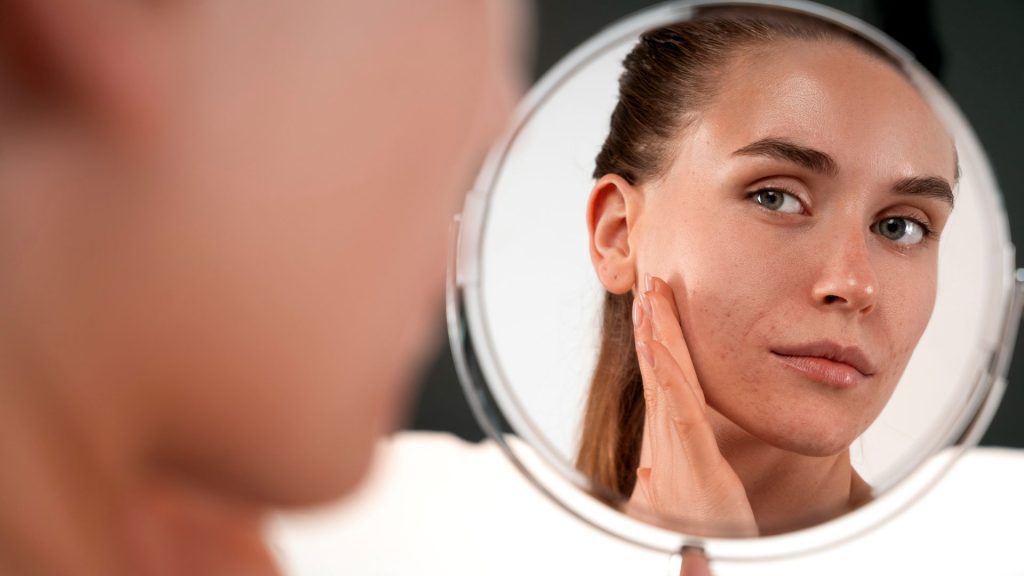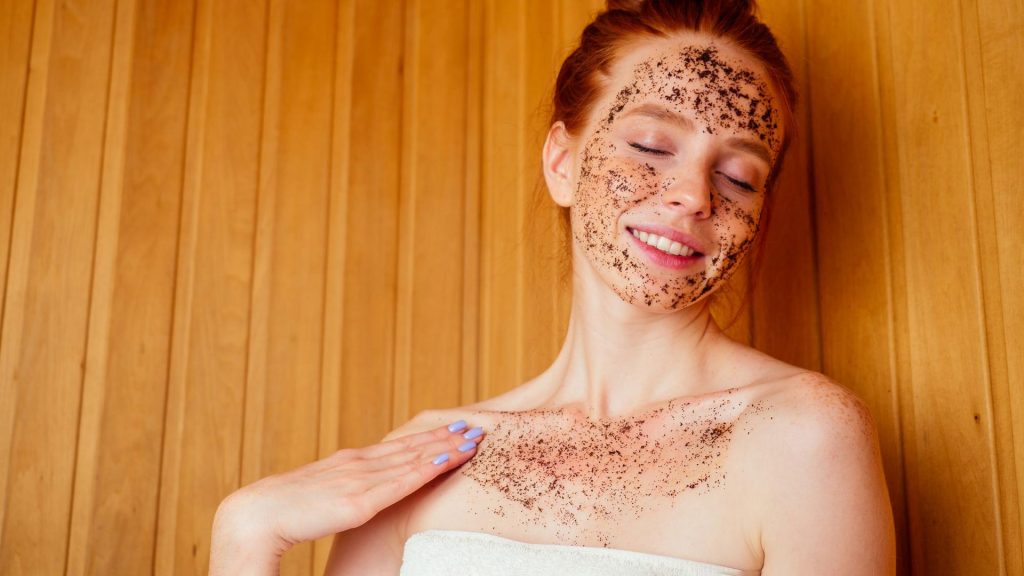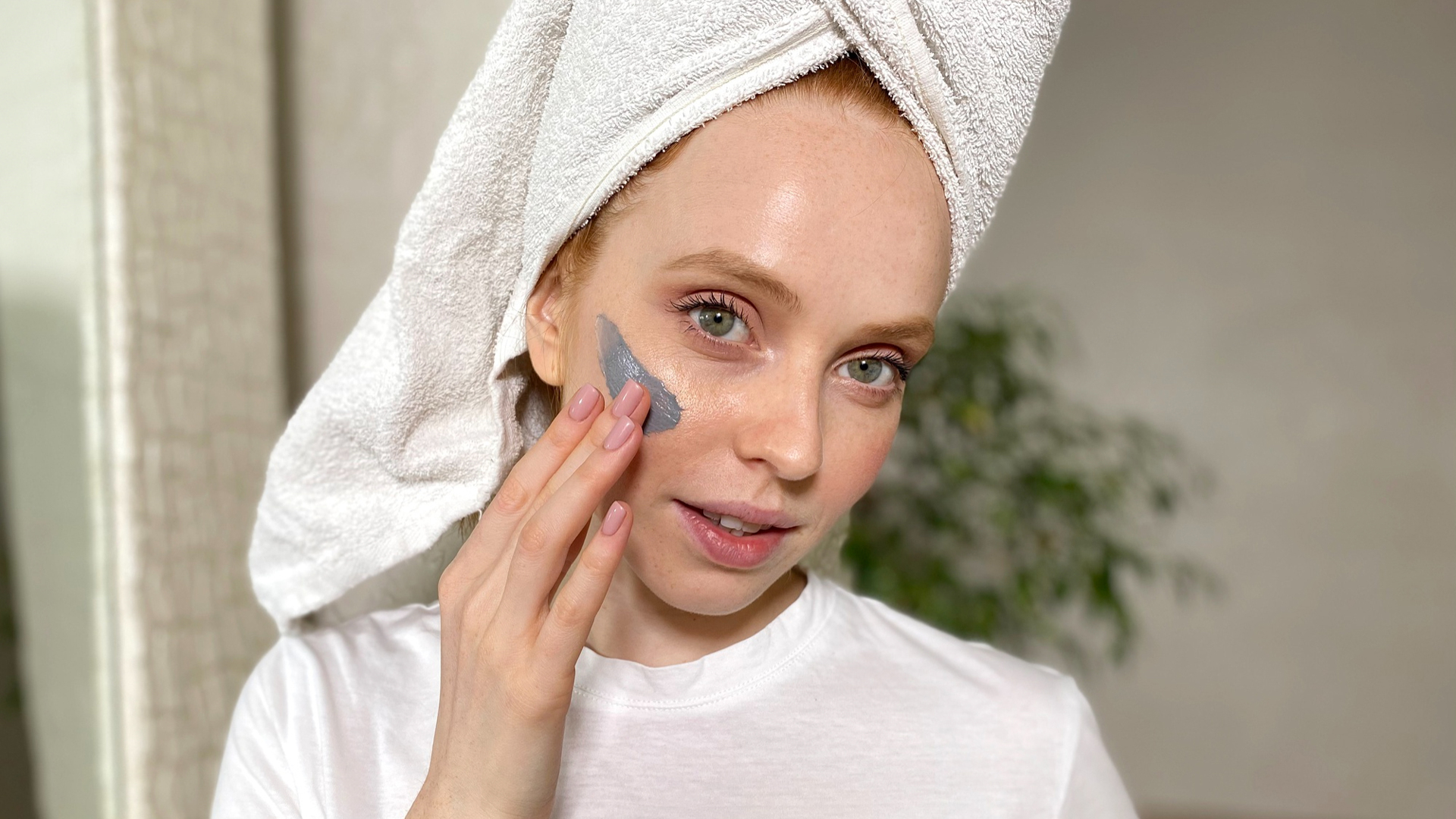If you’re someone who battles oily skin, you know the drill — a shiny forehead by midday, clogged pores, and the constant search for a solution that won’t leave your skin feeling greasy. Everyone dreams of having radiant, clear skin, but if you have oily skin, it can sometimes feel like an impossible dream. With the right routine and products on skin care for oily skin, it’s possible to achieve a flawless skin.
Let’s dive into the essentials of skin care for oily skin and discover tips to help you control oil production while keeping your skin healthy and glowing.
How To Understand Oily Skin?
Oily skin is often misunderstood, but it’s simply your skin’s way of producing a natural moisturizer—sebum. While sebum helps protect and moisturize your skin, too much of it can lead to clogged pores and acne.
What Causes Oily Skin?
- Genetics: If oily skin runs in your family, chances are, you’ll experience it too. Genetics play a huge role in determining how active your sebaceous glands are.
- Hormones: Fluctuations in hormones, particularly during puberty, pregnancy, or menstrual cycles, can spike sebum production, making skin oilier than usual.
- Environment: Humid and hot climates tend to cause the skin to produce more oil, while colder climates can sometimes do the opposite.
- Skincare Products: Believe it or not, using the wrong products can strip your skin of natural oils. This can trigger your skin to compensate by producing even more oil.
What Are Some Pros and Cons of Oily Skin
Pros
One of the biggest advantages is its natural moisture barrier. Sebum, the oil produced by your skin, helps lock in hydration, ensuring your skin stays moisturized and less prone to dryness or irritation. Another plus is that oily skin tends to age more slowly than other skin types. The extra oil acts as a protective layer, helping to reduce the appearance of fine lines and wrinkles and keeping skin looking younger for longer.
Cons
One of the most common issues is the tendency for frequent breakouts. Another downside is the constant battle with shine. Oily skin often leads to an overly shiny or greasy appearance, which can be frustrating for those who prefer a matte finish or struggle with midday oil buildup. Enlarged pores are also a common concern, as the overproduction of oil can cause pores to appear larger and more visible.
How to Identify Oily Skin

If you frequently notice shine on your face, especially in the T-zone (forehead, nose, and chin), you likely have oily skin. If your skin tends to develop oil or shine within a few hours after washing, this is a strong indication that you may have oily skin. Enlarged pores and regular breakouts are also common indicators. A simple blotting paper test can help confirm this; if your face leaves oil residue on the paper, your skin is oily.
Developing A Skincare Routine For Oily Skin
Creating an effective skincare routine is essential for managing oily skin. It helps control sebum production, prevent breakouts, and maintain a healthy complexion.
Cleansing is Key
Start with a gentle, foaming cleanser. Cleansing twice a day, morning and night, will remove excess oil, dirt, and makeup without stripping your skin of its natural moisture. Look for cleansers with salicylic acid, which can penetrate the pores and reduce oil buildup.
The Importance of Toning

Toners are crucial for oily skin as they help to balance your skin’s pH and remove any remaining impurities. Opt for alcohol-free toners with ingredients like witch hazel or tea tree oil, which are known for their astringent and anti-inflammatory properties.
Hydration and Moisturizing
Contrary to popular belief, oily skin needs hydration too. Skipping moisturizer can actually make your skin produce more oil. Choose a lightweight, oil-free moisturizer that hydrates without clogging pores. Hyaluronic acid-based products are excellent for oily skin as they provide hydration without heaviness.
Exfoliating Regularly

Exfoliation helps to remove dead skin cells that can clog pores and lead to breakouts. Use a chemical exfoliant containing AHAs (alpha hydroxy acids) or BHAs (beta hydroxy acids) once or twice a week. Avoid physical scrubs that can be too harsh and cause irritation.
Masks and Treatments
Incorporate clay masks into your routine once a week to absorb excess oil and unclog pores. Additionally, treatments with benzoyl peroxide or salicylic acid can target acne and prevent future breakouts.
Choosing the Right Products for Oily Skin
Selecting the right skin care products is crucial for managing oily skin.
- Ingredients to Look For
Look for products with salicylic acid, benzoyl peroxide, niacinamide, and retinoids. These ingredients help control oil production, reduce inflammation, and prevent acne.
- Ingredients to Avoid
Products with alcohol, oil-based, and comedogenic ingredients can clog your pores and should also be avoided. Always check the labels and opt for non-comedogenic products.
What Are Lifestyle Tips For Managing Oily Skin
Diet and Hydration
A healthy diet can impact your skin’s appearance. Avoid greasy, sugary foods and opt for a balanced diet rich in fruits, vegetables, and lean proteins. Drinking plenty of water keeps you hydrated and helps balance your skin’s moisture.
Stress Management
Stress can trigger in increasing oil production. Practice stress-relief techniques such as yoga, meditation, or deep-breathing to manage stress levels. Regular exercise can also reduce stress and improve overall skin health.
Proper Sleep
During sleep, your skin repairs itself. Aim for seven to nine hours of quality sleep each night.
What Common Mistakes Should be Avoided?
Over-Cleansing
While it’s important to keep your skin clean, over-cleansing can strip your skin of its natural oils, causing it to produce even more oil.
Skipping Sunscreen
Some people with oily skin avoid sunscreen, fearing it will make their skin greasier. However, sun protection is crucial. Choose a non-comedogenic, oil-free sunscreen.
Ignoring Moisturizer
It’s a misconception that oily skin doesn’t need moisturizer. Skipping this step can leave your skin dehydrated, prompting it to produce more oil. Always use a lightweight, oil-free moisturizer to maintain hydration.
The Role of Makeup in Managing Skin Care For Oily Skin

Makeup can help manage oily skin if chosen and applied correctly.
- Choosing the Right Foundation
Opt for mattifying, oil-free foundations that provide coverage without clogging pores. Powder foundations or mineral makeup can be good options for oily skin types.
- Setting Your Makeup
Use a setting powder or spray to lock your makeup in place and control shine throughout the day. Look for products that are specifically designed for oily skin.
- Blotting Papers
Keep blotting papers handy to manage excess oil during the day. They can absorb oil without disturbing your makeup, helping you maintain a fresh look.
Building a Sustainable Skincare Routine
Consistency is key when it comes to managing oily skin. Building a sustainable routine ensures long-term results.
Daily Routine: Stick to a daily skincare routine that includes cleansing, toning, moisturizing, and sun protection.
Seasonal Changes: Your skin’s needs may change with the seasons. In warmer months, you might need lighter products, while in colder months, richer products can help maintain hydration.
Frequently Asked Questions (FAQs)
Q: How can I tell if I have oily skin?
A: You can spot oily skin by a shiny appearance, particularly in the T-zone (forehead, nose, and chin). You can also identify by feeling greasiness shortly after cleansing.
Q: How can I reduce shine throughout the day?
A: Consider using blotting papers to absorb excess oil. You can also use a mattifying primer or setting powder to help keep makeup in place and reduce shine throughout the day.
Q: How often should I wash my face?
A: It’s general to wash your face twice a day— morning and night. If you engage in activities that cause you to sweat, you may need to cleanse more often.
Q: What causes oily skin?
A: Factors such as genetics, hormonal fluctuations, diet, humidity, and the use of certain skincare products can contribute to increased oiliness.
Your Path to Healthy, Balanced Oily Skin
Caring for oily skin is all about balance—keep your excess oil in check while maintaining your skin’s natural moisture. With the right approach, you can transform oily skin from a frustrating hurdle into a glowing asset. Embrace the journey, and let your skin achieve a smooth, radiant complexion.
Furthermore, for personalized skincare advice and product recommendations, consider booking a consultation with a skincare specialist. They can help you tailor a routine that best suits your needs and skin type.

